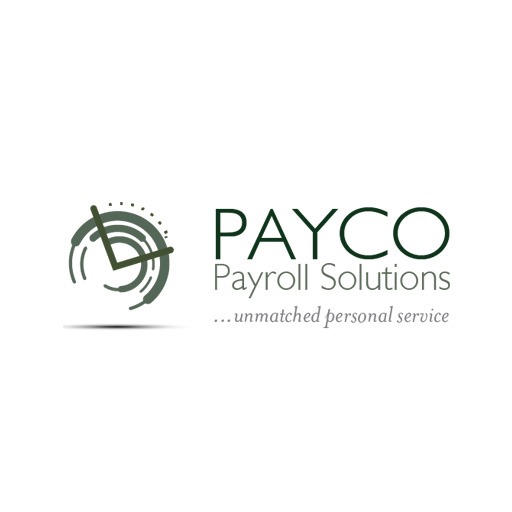Payroll management can be one of the most complicated business aspects. It’s not just about ensuring employees are paid on time; it’s also about adhering to various payroll regulations. Compliance with these regulations is crucial to avoid legal trouble and maintain your business reputation. For businesses in Cleveland, Georgia, understanding and complying with local, state, and federal regulations can seem challenging, but it is necessary.
Payroll software can also significantly contribute to maintaining compliance by automating calculations and keeping you up-to-date with changing regulations. By prioritizing compliance, you protect your business from unnecessary risks and foster a positive work environment. In this article, we’ll explore the importance of compliance with payroll regulations and offer practical tips for achieving compliance.
Understanding Payroll Regulations
Federal vs. State Regulations
Navigating payroll regulations requires understanding the differences between federal and state laws. Federal regulations, such as those set by the Fair Labor Standards Act (FLSA), cover minimum wage, overtime pay, and recordkeeping standards. These laws ensure that employees across the country receive fair treatment. However, state laws can differ and sometimes set higher standards than federal regulations. For instance, some states have higher minimum wage rates or more stringent overtime rules.
Businesses in Cleveland, Georgia, must comply with both federal and state regulations. While Georgia largely follows federal minimum wage rates, there can be variations in other areas, such as workers’ compensation and tax filing requirements. Failing to meet either federal or state standards can result in penalties, making it crucial to stay informed about both sets of laws.
Keeping up with these regulations can seem daunting, but tools and resources are available to help. Government websites, payroll software, and professional advisories can be invaluable in staying compliant. Understanding these rules is the first step in managing payroll effectively and legally.
Local Requirements in Cleveland, Georgia
In addition to federal and state regulations, local payroll management requirements in Cleveland, Georgia, can add another layer of complexity. Local tax rates, specific filing requirements, and region-specific labor laws can all impact your payroll process. For example, local jurisdictions may have unique tax obligations that require additional filings and records.
Knowing Cleveland’s specific requirements is crucial for accurate payroll processing. Not being aware of these local rules can lead to missed deadlines, incorrect tax payments, and penalties. Therefore, staying informed about local regulations is as crucial as understanding federal and state laws.
Local business organizations and chambers of commerce can be excellent resources for staying updated on local payroll requirements. These organizations often provide guidance, updates, and training sessions to help business owners remain compliant. Regularly consulting these resources and updating your payroll practices can ensure that your business in Cleveland stays on the right side of the law.
Consequences of Non-Compliance
Legal Penalties and Fines
The consequences of failing to comply with payroll regulations can be severe. Legal penalties and fines are among the most immediate and costly repercussions. Federal agencies like the Internal Revenue Service (IRS) and the Department of Labor (DOL) can impose substantial fines for violations. These fines can accumulate quickly and put a significant financial strain on your business.
For instance, misclassifying employees or failing to pay overtime can result in back pay owed to employees, along with additional penalties and interest. Late or incorrect tax filings can also attract fines, which can multiply if the issue remains unaddressed. Legal actions might even be taken against your business, resulting in court cases that require both time and money to resolve.
Ensuring compliance minimizes these risks. Using payroll software, keeping thorough records, and staying updated on laws are proactive steps that can help you avoid these costly penalties. Ignoring these precautions can lead to severe consequences that harm your business financially and operationally.
Impact on Business Reputation
Beyond legal and financial repercussions, non-compliance can damage your business reputation. Trust and reliability are imperative factors in building employee and client relationships. If your business fails to comply with payroll regulations, it can erode this trust. Employees who experience issues with their paychecks may feel undervalued and dissatisfied, leading to decreased morale and higher turnover rates.
Your reputation among customers and business partners can also suffer. Word of legal troubles and fines can spread quickly, tarnishing your brand image. This negative publicity can deter potential clients and partners from doing business with you, affecting your overall growth and profitability.
Maintaining compliance with payroll regulations demonstrates professionalism and reliability. It shows that you value your employees and take your legal responsibilities seriously. Protecting your business reputation involves consistently meeting all regulatory requirements and ensuring that your payroll process is fair and accurate.
Best Practices for Staying Compliant
Regular Training and Updates
One of the best ways to stay compliant with payroll regulations is to provide ongoing training and updates for your team. Laws can change frequently, and staying informed about these changes is crucial. Regular training sessions ensure all team members are current on the latest rules and procedures. This is particularly important for payroll managers and HR personnel directly involved in payroll processing.
Offering workshops, webinars, and access to online courses can help keep your staff informed. Encourage them to participate in these learning opportunities and make them a part of your company culture. Additionally, subscribing to newsletters from trusted industry sources can provide timely updates on regulatory changes. Keeping your team knowledgeable reduces the risk of non-compliance and the potential penalties that come with it.
Utilizing Payroll Software
Using payroll software is another effective strategy for maintaining compliance. This software automates many tasks prone to human error, such as tax calculations and recordkeeping. It also stays updated with the latest federal, state, and local regulations, ensuring that your payroll process complies with current laws.
Payroll software can generate accurate reports and file necessary tax forms automatically. It also provides reminders for important deadlines, reducing the stress and hassle of manual tracking. With features like these, payroll software can save time, reduce errors, and help you avoid fines. Investing in reliable payroll software is a smart move for any business serious about compliance.
The Role of Audits and Reviews
Conducting Regular Internal Audits
Internal audits are essential for maintaining payroll compliance. They involve a thorough review of your payroll processes and records to ensure everything is in order. Regular internal audits help identify and correct issues before they become significant problems. They also allow you to review your compliance with current laws and make necessary adjustments.
Conducting these audits on a scheduled basis, such as quarterly or annually, ensures that your business remains diligent. During an internal audit, check for common issues like incorrect employee classifications, missed tax payments, and incomplete records. Addressing these issues promptly can prevent legal trouble and improve payroll accuracy.
Seeking External Compliance Reviews
In addition to internal audits, seeking external compliance reviews can provide an extra layer of assurance. These reviews are conducted by third-party experts who can objectively assess your payroll compliance. External auditors can identify issues that internal teams might overlook and provide specialized advice on addressing them.
Hiring an external auditor can be particularly useful for complex payroll situations or after significant regulation changes. They can offer insights based on industry best practices and help you implement more effective compliance strategies. While external reviews may involve a cost, the benefits of ensuring full compliance and avoiding penalties far outweigh the investment.
Conclusion
Staying compliant with payroll regulations is critical to running a successful business. It involves understanding federal, state, and local laws and proactively adhering to these regulations. The consequences of non-compliance can be severe, ranging from legal penalties and fines to a damaged business reputation. However, you can ensure your business remains compliant by following best practices like providing regular training, utilizing payroll software, and conducting audits and reviews.
For personalized help with your payroll management needs, consider reaching out to PayCo Payroll Solutions. Our experts are dedicated to helping businesses of all sizes stay compliant and efficient. Contact us today to learn how we can assist you with all your payroll concerns.





